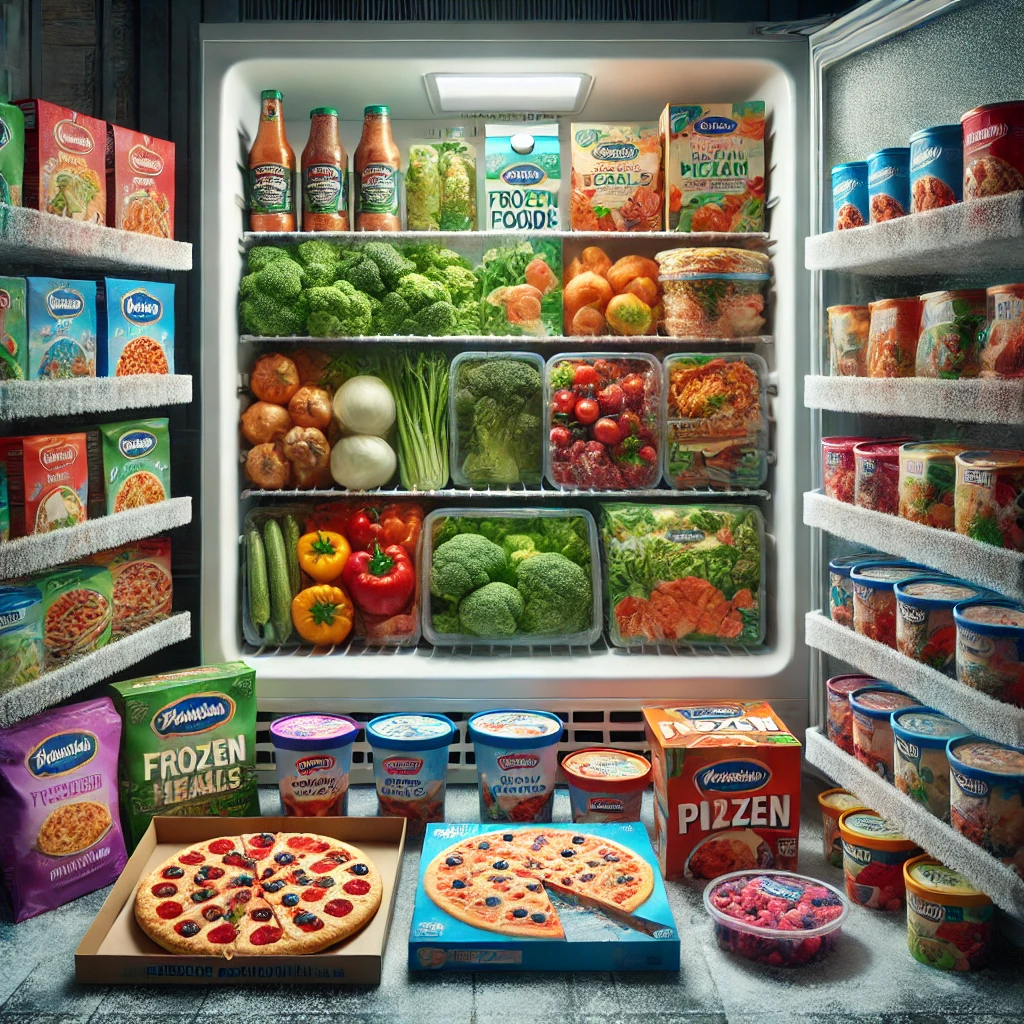The global frozen foods market is witnessing robust growth, fueled by shifting consumer lifestyles, technological advancements, and evolving dietary preferences. Once viewed as a last-resort option, frozen foods are now enjoying strong demand across retail and foodservice channels, thanks to their convenience, extended shelf life, and improved nutritional profiles.
According to industry estimates, the frozen foods market is projected to grow significantly over the next five years. Factors such as urbanization, rising disposable incomes, and an increasing number of working professionals are contributing to the demand for easy-to-prepare meal options. Consumers are embracing frozen fruits, vegetables, ready meals, meat & seafood products, and bakery goods—driven by both convenience and growing confidence in product quality.
The global frozen foods market size was USD 284.2 billion in 2023 and is projected to grow to USD 363.7 billion in 2028, at a CAGR of 5.1%.

- Changing Lifestyles and Busy Schedules: Today’s fast-paced lifestyle has left consumers with less time for meal preparation. Frozen foods offer a quick and hassle-free solution without compromising taste or nutrition.
- Technological Advancements in Freezing: Modern freezing technologies, such as Individual Quick Freezing (IQF), help maintain the texture, flavor, and nutritional value of foods. These innovations are helping change consumer perceptions about frozen products.
- Expanding E-commerce and Delivery Services: Online grocery platforms and quick-commerce services are making frozen foods more accessible. With better cold chain logistics and packaging, online retailers can now offer a wide variety of frozen products right to consumers’ doorsteps.
- Health and Wellness Trends: Today’s consumers are more health-conscious. Many brands now offer frozen organic, vegan, gluten-free, and low-calorie options to cater to diverse dietary needs.
Download PDF Brochure: https://www.marketsandmarkets.com/pdfdownloadNew.asp?id=130
Frozen Foods Market Segments
- Frozen Ready Meals: The largest segment, including pizza, pasta, rice dishes, and full entrees.
- Frozen Vegetables & Fruits: Gaining popularity due to year-round availability and nutritional benefits.
- Frozen Meat & Seafood: Driven by demand for protein-rich diets and convenience.
- Frozen Bakery Products: Bread, pastries, and cakes with an increasing preference for gourmet offerings.
Future Outlook
The frozen foods market is poised for continued growth, driven by:
- Rising demand for plant-based and vegan frozen meals
- Increasing focus on sustainable packaging
- Innovations in clean-label and organic frozen foods
- Growth of private label brands and premium offerings
Top 10 Companies in the Frozen Foods Market
- General Mills Inc. (US)
- Conagra Brands, Inc. (US)
- GRUPO BIMBO (Mexico)
- Nestlé (Switzerland)
- Unilever (UK)
- Kellogg Co. (US)
- McCain Foods Limited (Canada)
- The Kraft Heinz Company (US)
- Associated British Foods plc (UK)
- Cargill, Incorporated (US)
Frozen Foods Market Industry News
- In April 2023, Nestlé and the private equity firm PAI Partners came to an agreement to establish a joint venture focused on Nestlé’s frozen pizza business in Europe. This move aimed to create a specialized player in a highly competitive and constantly evolving market segment. In this joint venture, Nestlé would maintain a minority stake, ensuring equal voting rights in partnership with PAI Partners.
- In March 2023, McCain Foods, the global leader in frozen potato products manufacturing, made a significant announcement of a substantial investment totaling USD 438.4 million. This investment is directed towards the expansion and doubling in size of its potato processing plant located in Coaldale, Alberta. This strategic move is expected to foster continued growth for the company, strengthening its ability to cater to key markets.
- In January 2022, Unilever, the largest ice cream company globally, introduced its new portfolio offerings for the year 2022. These offerings spanned across four of its prominent packaged ice cream and frozen novelty brands, namely Breyers, Klondike, Magnum ice cream, and Talenti Gelato & Sorbetto. This strategic move reflected Unilever’s commitment to innovation and meeting consumer preferences by continuously refreshing its product lines and expanding its portfolio.
